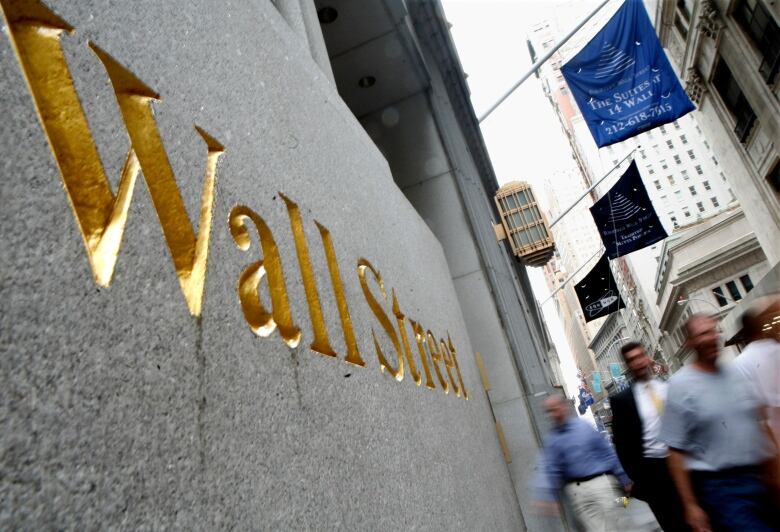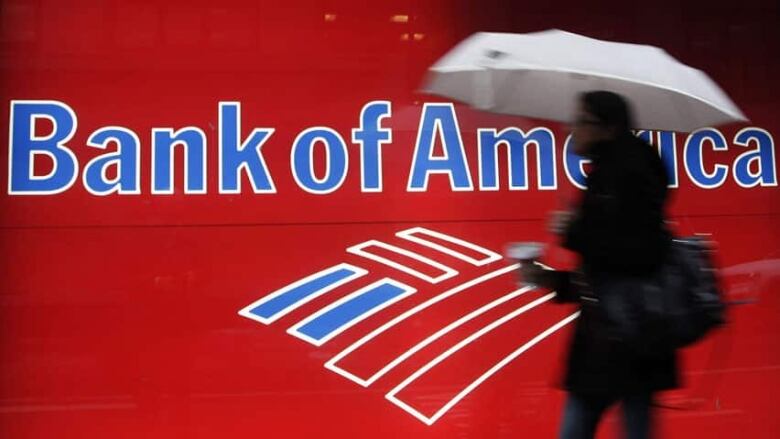Why companies flush with tax-cut cash are spending more on share buybacks than wage hikes
Apple, the most expensive company ever, plans to spend billions buying back its own shares

Corporate earnings are on track for their best year ever, but at least some of the corresponding rise instock prices isbecause ofbuybacks a piece of financial alchemythat critics saydiverts money from more important uses like expanding businessand paying workers more.
A buyback, as the name implies, is when a company buys back some of its shares from investors on the stock market. Investors tend to benefit because it means their remaining slice of the company is more valuable, as there are fewer shares out there.
And from the company's perspective, if a buyback isdone right,the company gets to improveits profitability on paperby sharing its profits withfewer shares.
The practice is typically done by large, established companies that earn lotsof cash that they don't otherwise have good ways to spend.
But even one of the world's fastest growing and most innovativecompanies is doing it.
Apple became the world's first trillion-dollar company this week after another impressive quarterly earnings performance pushed its market cap over $1 trillion US. The company previously saidit planned to buy back $100 billion of its own shares this year, and has been doing so with aplombin recent weeks.
Barry Schwartz, chief investment officer at money manager Baskin Wealth Management in Toronto, saidthe recent surge of buybacksis completely justified based on the underlying profits that companies are earning.

"We're going to have record profits this year, so it certainly makes sense that this would be a record year for buybacks," he said.
While he doesn't like it when he sees companies buying back shares using debt, or transparentlydoing it just to boost their share prices, Schwartz saidhe's fine when a company like Apple does it.
"Because they don't need to build more factories or widgets to get more sales," he said. "They're just swimming in cash."
New numbers released this week, however, show even companies with much less cash lying around are doing the same thing.
Left-leaning American think-tank the Roosevelt Institute foundthat from 2015 to 2017, U.S. companies spent 60 per cent of their profits on buying back their own shares, rather than investing that money in new ventures or pay hikes.
The report calculated how some companies could have spent that money differently:
- McDonald's could have paid its1.9 million workersalmost$4,000more a year.
- Starbucks could have givenevery workera$7,000raise.
- Lowes, CVS and Home Depot could haveeach giventheir workers raises of at least$18,000a year.
And with the tax reform billpassed last year, whichlowered the U.S. corporate tax rate from 35 per cent to 21 per cent, there's every indication those numbers will soon look even gaudier, saidKatie Bardaro, chief economist at compensation data firmPayScaleInc.
"One of the main responses to Trump's tax policy was to buy back stocks. It'sabsolutely a trend we are seeing among our clients," she saidof thegroup that includes large S&P500 companies all the way down to small independently owned businesses.
She cites data from another recent report, from the California-based Drucker Institute, that found corporations plan to spend 30 times more on stock buybacksthan on boosting their employees' paythis year.
Even among companies that are passing some of those newfound profits down to workers, most are paying bonusesrather than givingraises.
"It makes the employee feel good, and makes the employer feel good," Bardaro said, "but it's transitory it's a [one-time]boost in their wallet."
Bank of America, for example, received plenty of kudos after tax reform passedfor announcing it would give all 145,000 of its workers a $1,000 bonus. That act of corporate generosity will cost the bank $145 million or less than three per cent of the $5 billion the bank plans to spend buying back its stock this year.

Beyond employees, there's a potential downside for investors, too.
In a recent speech, Robert J. Jackson, a commissioner with the U.S. Securities and Exchange Commission, cited the regulator's own researchthat shows in the days following a buyback announcement, company executives were five times more likely to sell their own shares in the company.
In other words, executives were cashing in, even as they were telling investors they think their stock is undervalued. For Benj Gallander, president and founder ofContra the Heard Investment Letter, that's "bad optics," at the very least.
He's not opposed to buybacks in general, but he prefers for companies to reward shareholders with dividends or better yet, invest in growing their businesses.
"Often it's very, very questionable to me why companies do it," he said.
'Give it back to me'
For William McNally, aprofessor of finance at the Lazaridis School of Business and Economics in Waterloo, Ont., the reason is simple: buybacks are a great use of excess funds.
"These companies don't necessarily have great projects to invest in [so] it's not like they could just invent a new cure for cancer if they hadn't been giving it to those fat cat shareholders."
Plus, buyback critics might not like the results if companies decided instead to waste money on bad projects and misguided takeovers, he said.
"Better to give it back to shareholders and then they can choose to invest it in a new upstart company."
For a company like Apple, which is currently sitting on a $247-billion pile of cash, earmarking a good chunkof that to buying back its shares makes sense, McNally said.
"My attitude as ashareholder is, give it back to me," he said. "You don't have anything to do with it."












_(720p).jpg)


 OFFICIAL HD MUSIC VIDEO.jpg)
.jpg)



























































































